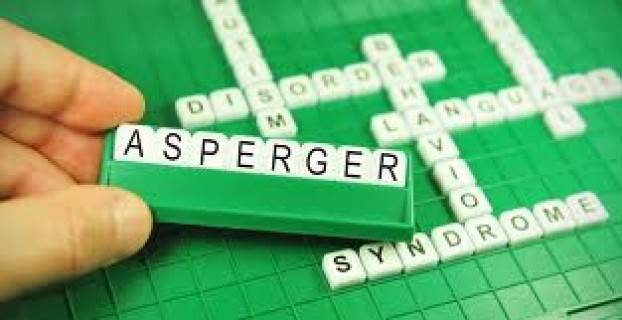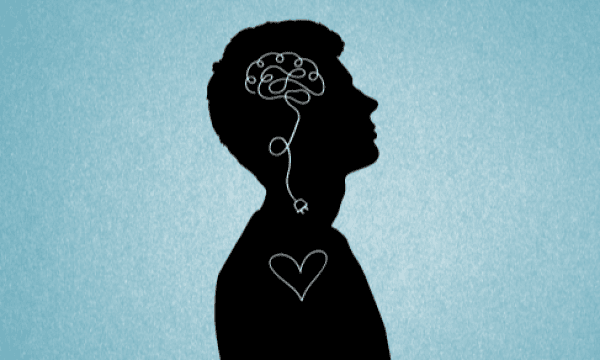
In Sri Lanka, there are a reported 39,000 children with autism. However, with no continuing data collection or improvements in screening tools, this is likely a gross underestimate. In India, the Autism Resource Centre in Tamil Nadu reports ~ 1 in 150 children are affected by Autism Spectrum Disorder (ASD). Here in Canada, ASD will be re-categorized from a set of distinct disorders into one disorder with different levels of severity. This change will be published in the newest Diagnostic and Statistical Manual of Mental Disorders. *Data provided by www.SAAAC.org
I was fortunate enough to start my teaching career as a Special Education teacher. Over the years, I have had the opportunity to work with students with varying degrees of autism. The greatest misconception I've encountered is that when people hear the word autism, for some reason they immediately think of individuals in the low end of the spectrum- those who are non-verbal and have difficulty retaining skills and information. This is why I would like to focus this article on Asperger Syndrome, which is considered a high functioning form of autism.
I can honestly say that the most gifted students I have ever encountered in my math classroom are those with Asperger’s. Individuals with Asperger Syndrome suffer from behavioral development and a lack of social skills. Some have the inability to make eye contact, do not like to be touched and have a tendency to rock back and forth. Yet among others, apart from social awkwardness, it is often difficult to detect that they have a disability because they are extremely high functioning.
I have always been fascinated with my Asperger students because of their brain power. Many have the ability to access parts of their brain that others will never be able to tap into. Sometimes this manifests itself in the form of a powerful memory that can retain the smallest piece of information for a long period of time. Other times, it is in the form of an exceptional anomalistic talent or obsession with a particular subject or discipline.

Experts in the research on Asperger Syndrome such as Dr. Teresa Bolick, Dr. Tony Attwood and Dierdre Lovecky all write about positive behavioural aspects of Asperger’s that are not connected to natural intelligence. Their extensive research proves that individuals with Asperger’s often develop advanced vocabularies, are able to recognize patterns that others do not and are not easily swayed by the opinions of others. They are often willing to spend long hours in laboratories or in front of the computer because they do not mind being alone. Their ability to focus on minute details allow them to come up with solutions to problems that others would overlook.
All of these qualities enable those with Asperger Syndrome to make pivotal contributions at both work and school. Dr. Temple Grandin is an adult with Asperger’s who became a successful engineer and academic in her field. She looks at her disorder as an asset, not a liability. Dr. Grandin believes that people born with autistic spectrum disorders are great innovators and once called NASA "a sheltered workshop for people with autism and Asperger Syndrome".
As an educator working with Asperger students, the greatest challenge is figuring out how to channel the power of their brain to help meet their full potential. Most Asperger’s students that I have encountered over the years are extremely gifted in different disciplines, but often possess one particular prodigal talent.
For example, we currently have a student with Asperger’s enrolled in our grade 12 math classes. He has been accepted to UOIT, the University of Toronto and the University of Waterloo for Engineering. He has one of the top calculus and functions marks in the school. In addition to his love for mathematics, he is musically gifted with ‘perfect pitch’- the ability to identify or re-create a given musical note without the benefit of an external reference. With a bright future ahead of him, he provides an inspiring example of the power of Autism.
It is important to note that a powerful intelligence does not make life any easier. Another student that I had the opportunity to teach for two consecutive years provided me with a very different perspective of what it means to live with Asperger’s. When I met him, he was a student in my grade ten academic math class. Despite his social awkwardness, this fifteen year old boy gave me the chance to debate theoretical mathematical concepts that I had the ability to understand only because of my university degrees. As a hobby, he would challenge himself by writing and excelling in the University of Waterloo’s math contests, and would place higher than most of our senior students.
I was completely amazed by the power of this brilliant young man’s brain. He had the uncanny ability to take every simple concept that I taught him and analyze its theoretical implications from multiple perspectives with an advanced level of mathematical reasoning. Given his intellectual ability, he was also more comfortable interacting with adults whom he considered intellectual equals than with kids his own age. His profound obsession with math and science gave him purpose in his life. He came to school eager to learn and discover answers to his questions.
One day, after going on a school trip downtown with his class, he returned looking completely defeated. To this day I don’t know exactly what happened on that trip. But what I do know is that day he somehow came to the realization that he was different from everyone else. This social experience caused him to retreat into himself. The world was no longer safe for him. Instead of approaching each day with child-like enthusiasm and wonderment, he began to look at his surroundings with skepticism and fear.
Despite the power of his brain, he started to resent the world around him and lost his thirst for knowledge for two years. Only after major counselling and behavioral therapy, he is finally starting to resemble the boy I used to know so well. The teenage years are hard enough. Imagine how hard it must be to go through those experiences with the inability to pick up on sarcasm, read body language and understand social conventions.
I have an endless amount of empathy for parents of children with autism who are completely dependent on their families to perform the simple tasks in life that most of us take for granted such as walking, eating and personal hygiene. However, I also sympathize for the emotional exhaustion that comes with parenting a child with Asperger’s. Imagine taking care of someone whose brain works at ten times the speed of your own! Individuals with Asperger’s have an unlimited bank of questions for you that will be repeated over and over, even though they already know that you do not possess the answers they seek. Would you have the strength to raise a child with an insatiable thirst for knowledge that can never be satisfied? This is an extremely daunting challenge that must be faced day in and day out. No matter what form of Autism Spectrum Disorder, parents of all children with Autism need support from organizations like SAAAC.
 Since its founding in 2008, the South Asian Autism Awareness Centre has recruited more than 150 volunteers and employees who work tirelessly every day to improve the quality of life of children and young adults living with autism. Through music and dance therapy, speech-language pathology, social programming, occupational therapy and after school activities, SAAAC provides a safe environment where these individuals can learn to combat their disability through positive social interaction. I have experienced first hand the power of SAAAC as the organization attempts to break down the stigma surrounding ASD in the South Asian community.
Since its founding in 2008, the South Asian Autism Awareness Centre has recruited more than 150 volunteers and employees who work tirelessly every day to improve the quality of life of children and young adults living with autism. Through music and dance therapy, speech-language pathology, social programming, occupational therapy and after school activities, SAAAC provides a safe environment where these individuals can learn to combat their disability through positive social interaction. I have experienced first hand the power of SAAAC as the organization attempts to break down the stigma surrounding ASD in the South Asian community.
Tamil Culture is partnering with SAAAC to create awareness about Autism Spectrum Disorder. This article has focused on Asperger Syndrome. The month of March will be dedicated to publishing a series of articles highlighting the personal stories of individuals with different degrees of Autism along stages of the spectrum.
Awareness must go hand in hand with knowledge and it is our hope that these stories will provide our readers and SAAAC supporters with a better understanding of the diversity of ASD. Support our quest to spread awareness by following Tamil Culture’s Autism series. We encourage you to share these articles with as many individuals as you can.
SAAAC’s Radiant Night Gala Dinner Dance to raise funds for Autism takes place on March 9th at the Scarborough Convention Centre. Come and witness the Power of SAAAC. See you there!
 Check out this video about a young boy with Asperger Syndrome, interviewing his mother on what it means to be his parent:
Check out this video about a young boy with Asperger Syndrome, interviewing his mother on what it means to be his parent:


























